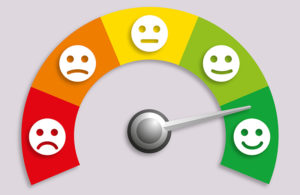The HOA budget meeting is an important event in any homeowners association. Make sure all goes well with yours by adopting these tips for planning and presenting your annual budget.
How to Prepare for Your Annual HOA Budget Meeting
Budget planning is an essential part of managing a homeowners association. It sets the ground for the year’s anticipated expenses and member contributions. The homeowners association budget meeting, though, is often difficult to navigate if you are not prepared. Here are the best tips for planning and presenting the annual budget.
1. Get Started Early
To have successful HOA budget meetings, it is imperative to start planning ahead of time. Your HOA board should schedule a day dedicated to talking about the oncoming year’s expected costs.
You will need to examine the actual expenses you incurred the current year to give you an idea of how much you need to set aside for the next year. It is also a good idea to contact your vendors and service providers. This way, you can ask if there will be rate increases and perhaps even gun for a discount.
Some of the documents you will need to prepare ahead of the budget meeting include:
- A cover letter explaining what the package contains and how the budget process goes
- The budget itself consists of every line item and the corresponding amount
- An analysis of the upcoming year’s budget in comparison with the actual expenses of the previous year
- An explanation of each line item in the budget
- Any visual aids such as charts and graphs
2. Ask for Homeowner Input
 It is important to get your residents involved in the budget preparation process, too.
It is important to get your residents involved in the budget preparation process, too.
Asking homeowners to give their two cents will allow your board to understand things from their perspective and even give you insights that you would otherwise have missed. It is also comforting for residents to know that your board is taking their opinions into account. This gives the impression of transparency and involvement, allowing residents to feel truly valued and heard.
There are a few ways you can accomplish this. You can create a survey that residents can answer either physically or via email. You can also schedule a general budget meeting for HOAs where residents can give you their input in person. While your HOA board can do this on your own, you can also assemble a budget committee to handle the details.
Keep in mind, though, that resident input is not always helpful. Some homeowners may just air their grievances or criticize how high members’ dues have grown. As an HOA board, it is your job to do things for the community’s best interest. Unfortunately, that may mean having to ignore some of the opinions residents give you. It is unwise to try to please everyone, so make it clear to all homeowners that not every suggestion will be implemented. This way, they can set their expectations from the get-go.
3. Follow Notice Requirements
While a budget meeting is not required for all homeowners associations, there are some states with laws mandating it. Your governing documents may also have a say in the matter.
If your HOA is required to hold a budget meeting or a budget ratification meeting, make sure to follow notice requirements to the letter. For example, in North Carolina, the board must provide notice of the budget ratification meeting within 30 days after adopting the proposed budget. The actual meeting itself must also take place within 10 to 60 days of sending out the notice. In some states and HOAs, it may also be necessary to include the HOA budget meeting agenda in the notice.
Make sure to check your state laws and governing documents for guidance on HOA budget meetings. Failure to comply can result in liability for your homeowners association and board.
4. Explain Line Items
Presenting the annual budget to all of the members can be a grueling task if you don’t know where to begin. For a smoother HOA budget meeting, detail each line item so owners know what they are paying for. It also gives you a more comprehensive outline of what you will explain to them.
Every line item should have its budgeted amount along with a short yet informative explanation of what it entails. This explanation can include details on special projects, utility rate increases, new programs you intend to adopt, historical data, etc. Supporting your presentation with these explanations, especially when it comes to line items with significant increases, will allow members to understand the budget better. It also gives your board an easier time as you have come prepared.
Explaining each line item also fosters trust between the board and the community’s members. You will naturally encounter some pushback for large increases, but giving a detailed explanation of those increases will give the needed perspective. Make sure to take questions from residents, too, if they have any.
5. Use Visual Aids
When your presentation purely consists of text, it may not be easy for everyone to process equally. Some members may be visual thinkers, so the use of charts and graphs will certainly be beneficial.
Representing increases and percentage shares with the help of visual aids can help explain the budget more clearly and in a single glance. Of course, use these visual aids sparingly. Overuse could cause residents to get confused as the information gets muddled together.
6. Adopt the Budget
Finally, your hard work has paid off, and it is now time to adopt the proposed budget. After the board successfully votes to adopt the budget, you should send a final notice to all homeowners. This notice should inform members that the board has approved the new budget.
It should also include the calculated amount each member can expect to pay in dues. Make sure to give residents enough time to get their finances in order, so mail this notice at least 30 days before the new fiscal year and dues collection. It may also help to send out reminders when the date for collection nears.
For a Smooth HOA Budget Meeting
Many board members, especially newbies, consider budget preparation season as a stressful period of time. But, it does not have to be that way. When you follow these tips for planning and presenting, your HOA budget meeting should go without a hitch.
If your homeowners association needs professional help, Elite Management Services is your best choice. Call us today at (855) 238-8488 or contact us online to request a free proposal.
RELATED ARTICLES:
- HOA Budget Guideline: How To Come Up With An HOA Annual Budget
- HOA Donations: Should The HOA Accept Them?
- 7 Powerful Tips To Plan HOA Meetings Better




